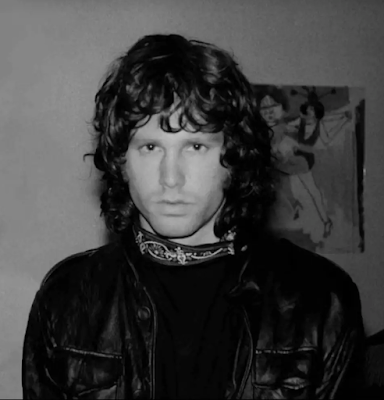THE SUITE MUSICAL FORM: THE DOORS "WHEN THE MUSIC'S OVER"
The musical form known as the "suite" originated in baroque
classical music from the mid-17th to the mid-18th century. One of the most
famous composers of this genre was George Philipp Telemann.
We recommend listening to some of his many suites, characterized by a
sequence of short instrumental pieces named after various folk dances.
These movements make up a suite, which today, for simplicity's sake, we
could call a series of short compositions linked together to form a single
composition.
Over time, this form evolved into what is now known as a symphony. From there, it spread into jazz, as evidenced by tracks such as Sonny Rollins' 1958 “Freedom Suite” (link here).
While remaining a rarity in the genre, the jazz suite lost the formal
division into separate parts, which were instead connected by sound continuity.
A musical journey would be performed, beginning with an initial theme,
moving through other improvised or previously composed atmospheres, and then
ending with the initial theme.
The Doors were familiar with jazz, having been inspired by Hard Bop and
Modal Jazz styles both on stage and in the recording studio since early 1966.
The Doors drew inspiration from jazz to translate the complex
performance style of the suite into rock music, showcasing the daring
creativity that has earned the Californian group its fame.
At the beginning of their recording career, the band adapted the suite
form to create two masterpieces, each exceeding ten minutes in length.
The first was "The End", written in the first half of 1966 and included on their debut album, "The Doors", released in January 1967. The second, "When the Music's Over", was included on the band's second album, "Strange Days", released in September 1967 (link here).
Work on this second suite began in 1966 and was brought to fruition
through numerous live performances, finally being recorded on vinyl in the
summer of '67.
Thus, the "Strange Days" LP contains a bright example of how
the language of rock can be innovated by using a structure belonging to another
musical genre.
In fact, "When the Music's Over" begins with a theme that
returns at the end of the song. These two moments are separated by different
developments in rhythm and melody.
This song is significant also because it paved the way for similar experiments by other groups, such as Iron Butterfly with their 1968 release "In-A-Gadda-Da-Vida" (link here).
Furthermore, the tendency to combine different themes and instrumental
sections would, in 1969, lead to the creation of a new genre of rock:
progressive rock.
From then on, numerous progressive rock bands would attempt to compose
musical journeys capable of transporting listeners through soundscapes that
varied in rhythm, tempo and melody.
The Doors are certainly among those who made this important evolution
possible in the first place.
The suite 'When the Music's Over' is another clue that confirms their
role as key figures in the development of rock, pop-rock and contemporary music
in general.
P.S.: My book "The Doors Through Strange Days"- The most comprehensive journey ever made through The Doors' second LP, is available on Amazon.com, .uk, .mx, .it, etc.
Here’s a link:




Comments
Post a Comment